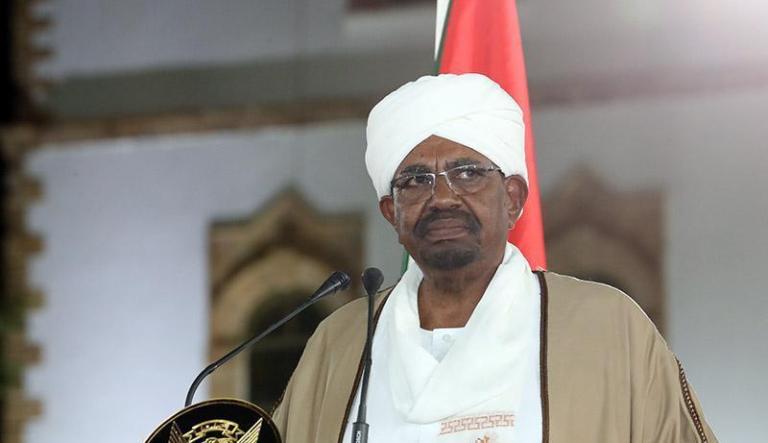Sudan’s Bashir bans peaceful opposition protests

February 25, 2019 (KHARTOUM) – Sudanese President Omer al-Bahir Monday issued five decrees dealing with peaceful activities hostile to the government including the ban of unauthorized demonstrations and publication of news undermining the constitutional order in a bid to curb the over two-month protests calling for his resignation.
The decrees which are issued in line with the state of emergency declared on 22 February, al-Bashir released Decree no 3 prohibiting assembly, gathering and unauthorized processions.
The presidential decision bans strike, service or work stoppage and disabling public utilities.
Further, it prohibits holding conferences discussion meetings, events and similar activities without the permission of the competent authority.
The other decrees deal with the black market of hard currency, gold and fuel smuggling, and corruption.
Following the imposition of the state of emergency, the head of the political sector at the ruling National Congress Party (NCP) stated that the purpose of the move was to redress the national economy but not to confiscate freedoms.
“The state of emergency means to address the chaos in economic affairs, resolving the issue of cash shortage and to fight corruption as well as to stop practices casting negative effects on economic affairs, especially the smuggling of gold,” Abdel-Rahman al-Khidir. told an NCP meeting held in Jebel Awliya on 23 February.
The President has prohibited the publication or circulation of news aiming to undermine the constitutional order or to spread the spirit of hatred, racism or discrimination by any means of visual, audiovisual, readable or other means of social media, reads the decree.
In addition, under the decrees, security forces have the right to search any building, restrict the movement of persons and public transport, arrest persons suspected of a crime related to the state of emergency and seize assets or property during investigations.
A decree punishes any person who contravenes its provisions “in addition to any penalty provided for in any other law, remains liable to imprisonment for a term not exceeding ten years and a fine.
Also, the punishment includes “the confiscation of means or money used in the commission of any act prohibited under this Order,” stresses the decree.
Amnesty International Monday called on the Sudanese authorities to end measures taken under the state of emergency to crush dissent amid ongoing nationwide protests in the country.
“The state of emergency is being used by the Sudanese authorities as a justification to flagrantly increase the use of live ammunition and tear gas against protesters, and to torture detainees without any restraint,” said Joan Nyanyuki Amnesty International’s Director for East Africa, the Horn and the Great Lakes.
On Sunday, security forces fired live ammunition and teargas at protesters in Khartoum state, injuring at least three people. Another group of officers forced their way into the University of Medical Sciences and Technology (UMST) campus in Khartoum where students were peacefully protesting. They fired tear gas into classrooms, beat up students and arrested dozens of them.
The protests continued in Khartoum state defying the imposition of the state of emergency on Saturday and the security forces used tear gas and live ammunition to disperse the demonstrations, injuring three people.
On Sunday, the security agents entered into the campus of the University of Medical Sciences and Technology (UMST) in Khartoum where students were peacefully protesting. They fired tear gas into classrooms, beat up students and arrested dozens of them.
The same on Monday when the students of Ahfad University for Women staged an anti-government protest the security forces fired tear gas to disperse the demonstrators inside and outside the campus.
(ST)
